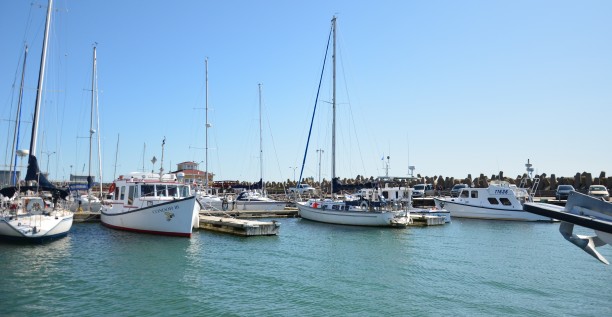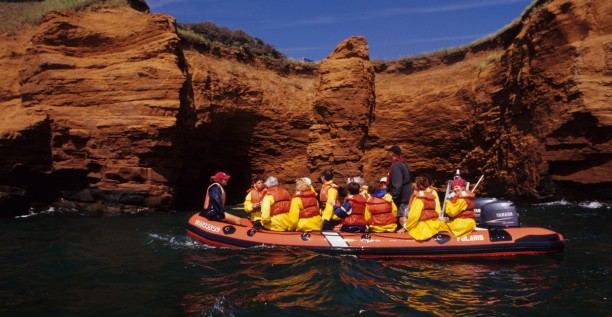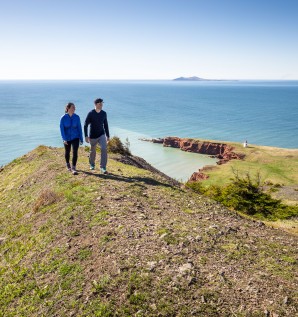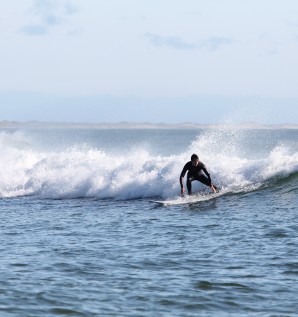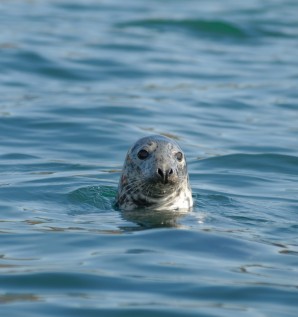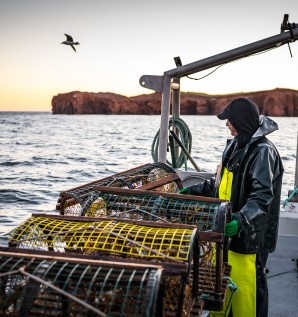

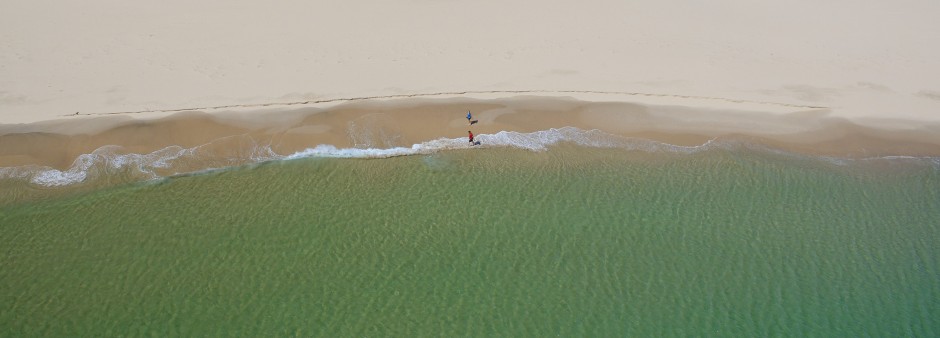
Most of the sand on the beaches starts off as sandstone eroded from red cliffs. Once in the salt water, material from the cliffs loses its thin film of iron oxide and is carried around the islands by longshore currents before being deposited in spits whose general orientation is determined by the direction of the prevailing winds and currents. Once dry, the sand appears white. It accumulates on beaches and helps create the dunes. Grains of sand on the beaches are in constant movement, and the width of any beach is directly related to the volume of material available and the strength of the waves and currents, which carry it.
The beaches are easy to reach, and what a pleasure it is to swim, relax and get a good tan from the wind and the sun or take long, invigorating walks.You can also build sand castles, collect shells or just sit and meditate by the sea.
The temperature of the seawater around the islands usually stands at around 18°C (64°F) in mid-August. Water in lagoons and bays can reach temperatures higher than 20°C (68°F). Wind is a major factor when choosing a place to swim: it is always a good idea to look for a beach that is protected from the wind.
Nordic bathing in the Magdalen Islands offers a refreshing and invigorating experience. Nestled in the Gulf of St. Lawrence, these islands provide a unique setting for this practice. The benefits go beyond oceanic freshness, encompassing immune system stimulation, improved blood circulation, and muscle relaxation. The crystal-clear waters, rich in minerals, combined with the pure sea air, create a therapeutic blend. This Nordic ritual becomes a soothing ceremony, strengthening the sacred connection of the locals with the island's nature. Nordic bathing in the Magdalen Islands is thus a harmonious fusion with the natural elements of the surroundings.
13 Results
